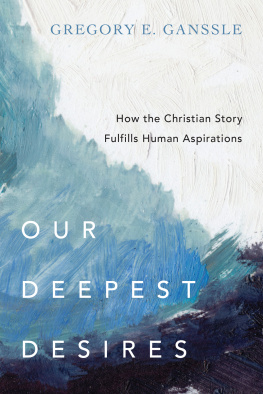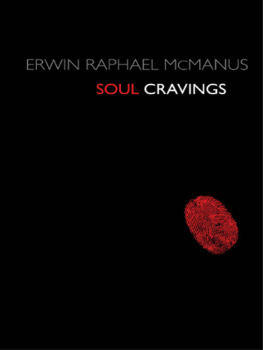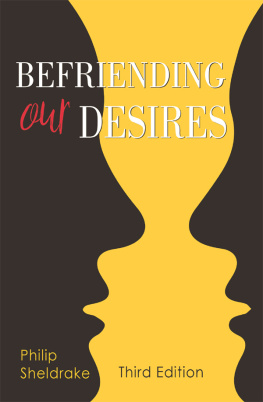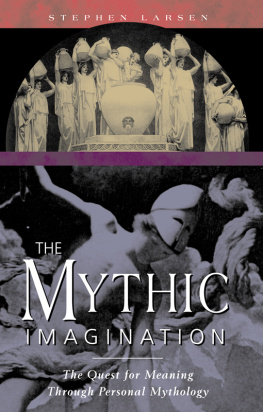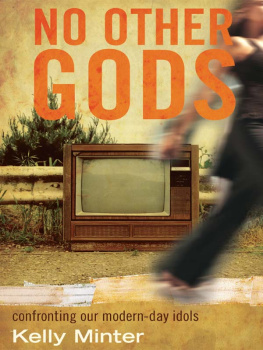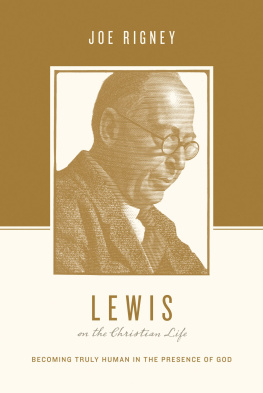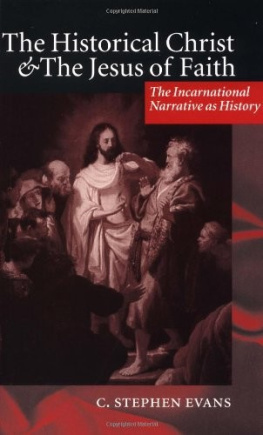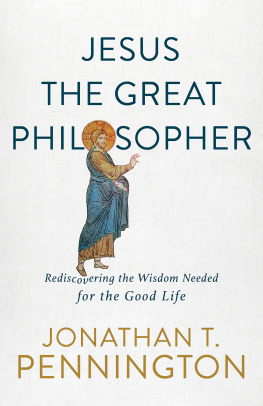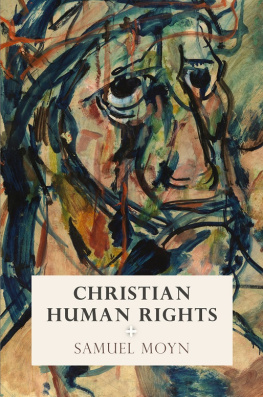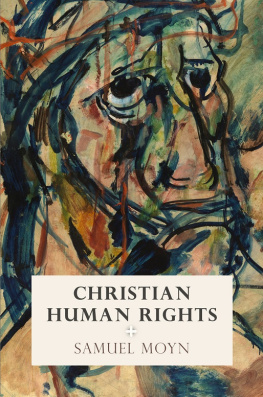OUR
DEEPEST
DESIRES
How the Christian Story
Fulfills Human Aspirations
GREGORY E. GANSSLE
InterVarsity Press
P.O. Box 1400, Downers Grove, IL 60515-1426
ivpress.com
2017 by Gregory E. Ganssle
All rights reserved. No part of this book may be reproduced in any form without written permission from InterVarsity Press.
InterVarsity Pressis the book-publishing division of InterVarsity Christian Fellowship/USA, a movement of students and faculty active on campus at hundreds of universities, colleges, and schools of nursing in the United States of America, and a member movement of the International Fellowship of Evangelical Students. For information about local and regional activities, visit intervarsity.org.
Scripture quotations, unless otherwise noted, are from the New Revised Standard Version of the Bible, copyright 1989 by the Division of Christian Education of the National Council of the Churches of Christ in the USA. Used by permission. All rights reserved.
While any stories in this book are true, some names and identifying information may have been changed to protect the privacy of individuals.
Cover design: Cindy Kiple
Interior design: Daniel van Loon
Images: Petorn/iStockphoto
ISBN 978-0-8308-9095-8 (digital)
ISBN 978-0-8308-5182-9 (print)
This digital document has been produced by Nord Compo.
For some lifelong friends
David Horner
David Kanne
Kurt Richardson
With lifelong gratitude.
Acknowledgments
T hese thoughts have been simmering for several years. As a result, I have many people to thank for help and encouragement along the way. My first attempt to speak on these matters was due to an invitation by the Yale Christian Fellowship. I want to thank Greg Hendrickson for the invitation and the Yale Secular Student Alliance, who participated with a rigorous discussion. That talk was later published in Logos: Yales Journal of Christian Thought. Annie Vo was then editor and did much to help me clarify my work. An early version of about half of this book was discussed over several weeks by Craig Leukens and Dashell Laryea. I appreciate their insightful comments. My son Nick also read chunks and offered his writers touch.
I presented versions of this work at Vienna Presbyterian Church, the Mount Airy Apologetics Conference, St. Johns Episcopal Church, the University of Massachusetts, the University of Missouri, and the University of New Hampshire as well as at a joint meeting of Yale Students for Christ and the Yale Humanist Community. I appreciate all of the discussion in these places.
Others who gave comments or encouragement include A. J. Roberts, Samuel Loncar, Priscilla Guerra, John Hare, Tony and Katie Bomkamp, Michael and Ansley Swanson, David and Karen Mahan, Rick and Soozie Schneider, Jon and Anita Hinkson, Don and Sue Smedley, Dave and Deb Horner, Kerri Thorn, Dave Peterson, and Ben Northrup.
Lizzy Ganssle, Tony Bomkamp, Steven Horst, and Kevin Timpe each read the entire manuscript with great care. They gave extensive comments. I have taken most of their suggestions, and I take responsibility for not following them all. I also want to thank David McNutt, my editor at InterVarsity Press. His comments were helpful, and his entire team made this book what it is.
My familyJeanie, David, Nick, and Lizzyprovided encouragement and constant cheering. Three lifelong friends have been strong pillars over the decades. We all met the summer of 1978 and have tracked with each other since then. Dave Horner and I discovered and pursued philosophy in parallel tracks. After thirty-five years we finally teach in the same department. This situation brings great joy. Dave Kanne helped me from the earliest years of my work in campus ministry to be confident to lead and to teach. Kurt Richardson is the most consistent, thoughtful friend a person could have. He regularly reminds me of the milestones in our shared journey. The encouragement of these three has helped make me the person I am today. They have been a steady reminder that, as the psalmist says,
Behold, you have made my days a few handbreadths,
and my lifetime is as nothing before you.
Surely all mankind stands as a mere breath! (Ps 39:5 ESV)
It is fitting and a pleasure to dedicate this book to these friends.
Introduction
MAKING SENSE
OF OUR DESIRES
I always had a sense of dread when exams were handed back in class. What was my grade? Was I in deep trouble or only minor trouble? If I was in deep trouble, my mind turned to the second worry: Can I pass the class? Imagine my surprise when I saw a B on my calculus exam. I was safe. As the instructor went through the problems on the test, however, I became more and more restless. Perhaps I was not safe after all. It began to feel like trouble. The way he explained the problem did not match what I had written, yet I had received a significant amount of credit. After class I approached him, handed him my test, and asked a question he had probably never heard. Can you look at question 3 and tell me what I did right? He walked through the steps and explained how I was actually on the right track. I did get a B. I was not in trouble after all!
Calculus does not make sense to me. It never has. If I had worked harder, it might have turned out differently. But I didnt work at it. I never learned it. Almost forty years later, all I remember is the feeling of dread and wondering what I did right. But calculus is not the only thing that does not make sense to me.
Not long after I finished college, I spent a summer in Ocean City, New Jersey. Down the street from where I stayed was a delicatessen called Eds Deli. I would be surprised if it is still there. My friends and I would stop in most days and buy junk food. (I was younger then. I still buy junk food, but now I feel guilty about it.) One day there was a long line for checkout. As I waited I took a few strings of penny licorice out of the jar on the counter and ate them. This was in 1982, and the licorice did cost a penny a string! As I paid for my snacks, I said, Heres three cents for the licorice. The teenage girl behind the counter exclaimed about my honesty. Why would I pay for something I could have eaten for free? I said, Well, my integrity is worth more than three cents. It never occurred to me to take the licorice without paying. Stealing candy does not make sense.
So among the things that do not make sense to me are calculus and shoplifting. These two items fail to make sense in very different ways. Calculus does not make sense because it is too complicated. Shoplifting is different. It does not make sense to me, but I understand it exactly. There is no confusion. Its lack of sense is of a different kind altogether. It does not make sense because I cannot fit it into what I know about who I am and what I want my life to be. Something makes sense in this way if it fits with what we believe or care about. It does not make sense if it does not fit. There is a kind of connection when things make sense in this way. What connects with what we hold to be true or important makes sense. What does not connect does not make sense.
Each human being has a project. In fact, we all share the same project. This project is to navigate the world in the best way we can. Each of us proceeds with the aim of being and doing certain things but not others. We aim to do the things that make sense to us and to avoid the things that dont. We navigate the world in light of our commitments and assumptions about what is good to do or to be. These commitments determine what makes sense to us and what does not. Small events or decisions make sense if they connect with a bigger view of our life and do not make sense if they do not connect. Thus the larger questions shape the smaller ones.

